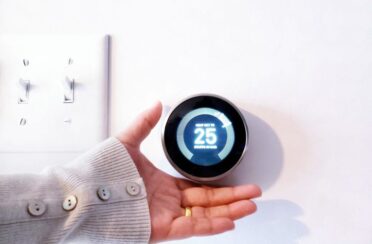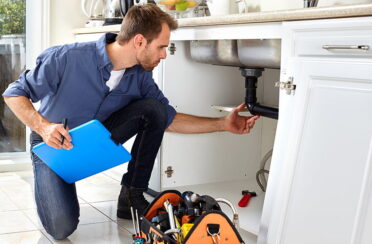
Do you have concerns that you’re using too much energy to heat and cool your home, and your goal is greater energy efficiency? If so, bringing your home’s various systems and components into sync is a good starting point. Here are some important steps you can take toward syncing HVAC systems to achieve optimal household efficiency:
Prioritize Preventive HVAC Maintenance
Your heating and cooling system needs regular preventive care to operate at its maximum efficiency. By scheduling semi-annual maintenance visits with a skilled HVAC professional, you’ll ensure that the equipment is clean and tuned-up and that any emerging problems are identified and corrected before they negatively affect the system’s performance.
Plug Exterior Air Leaks
Finding and plugging leak sources through your home’s conditioned envelope can dramatically improve your heating and cooling efficiency. You can use weatherstripping, caulk or expandable foam as needed to fill gaps and cracks around the exterior doors, windows, foundation/sill plate juncture, and where wires, vents or pipes pierce the exterior shell.
Improve the Ductwork
Addressing leaky, uninsulated ductwork can prevent the loss of 20 percent or more of your HVAC air output. To improve ductwork efficiency, make sure connections are tight, have seams and joints sealed with metal-backed tape and the accessible ducting wrapped in R-6 insulation.
Seal and Insulate the Attic
Unsealed leaks and insufficient attic insulation can cause considerable energy waste through conditioned air losses and heat transfer. A two-prong approach is what’s needed to improve attic efficiency: first, seal up leaks around plumbing, HVAC and electrical penetrations, the chimney, attic hatch and the floor perimeter. Then, insulate evenly to R-49/R-60 between the attic floor joists.
Replace Inefficient Windows
Upgrading to more efficient windows can help limit drafts and heat loss through the glass. When you’re comparing new windows, look for Energy Star-qualified, gas-filled double- or triple-pane units with a LoE coating. The windows best suited for Calgary homes are rated for Zone 2, with a minimum ER rating of 29, and a U-factor of 1.40 or less.
To learn more about syncing HVAC systems in your Calgary home, contact us at Arpi’s Industries.
Our goal is to help educate our customers in Calgary, Alberta about energy and home comfort issues (specific to HVAC systems). For more information about other HVAC topics, download our free Home Comfort Guide.


